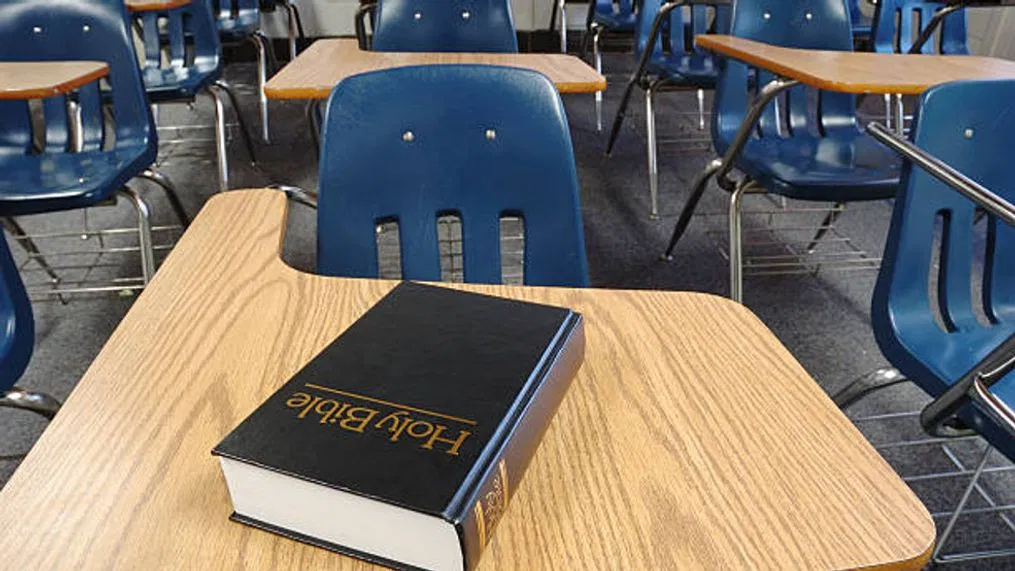

Last month I participated in an American Historical Association “History Behind the Headlines” webinar on recent attempts in Louisiana and Oklahoma to bring the Bible into public schools. I have not seen a video of the event yet, but over at Perspectives on History AHA staffer Laura Ansley has a write-up.
Here is a taste:
On June 27, 2024, Oklahoma state superintendent of public instruction Ryan Walters issued an order that “effective immediately, all Oklahoma schools are required to incorporate the Bible, which includes the Ten Commandments, as an instructional support into the curriculum” for grades 5 through 12. Nearly a month later, Walters followed up with guidelines for teachers, distributed via the Oklahoma State Department of Education website and on social media, that “must be provided to every teacher as well as providing a physical copy of the Bible, the United States Constitution, the Declaration of Independence, and the Ten Commandments as resources in every classroom in the school district.” According to Walters, “These documents are mandatory for the holistic education of students in Oklahoma.”
The AHA issued a statement condemning these orders on July 9. “Oklahoma students deserve history education that is accurate and consistent with professional standards,” the AHA wrote. Seventeen peer organizations have signed on to this statement.
Historians addressed this mandate and related developments at an AHA webinar on July 26. In other states, including Florida, Louisiana, and Texas, state authorities have made significant claims about the relationship between the Bible and the nation’s founding. Recent legislation in Louisiana requires the posting of the Ten Commandments in public school classrooms, including institutions of higher education. The Texas State Board of Education announced a major curriculum redesign that significantly expands attention to Biblical content in the K–5 English language arts and reading curriculum. Moderated by Jon Butler (Yale Univ.), the webinar panel focused on the historical roots of such mandates and guidelines and how they might affect social studies instruction in K–12 public schools.
Superintendent Walters claims that his mandate will not lead to indoctrination, proselytizing, or conversion efforts, and that teachers can incorporate views from other religions. But Walters did not stop with a mandate. On July 9, he announced an Executive Review Committee—including prominent right-wing activists such as Kevin Roberts of the Heritage Foundation and talk-show host Dennis Prager—whose mandate is to overhaul the history and social studies curriculum with an emphasis on “American exceptionalism.”
As Butler noted in his introduction to the session, implementation of such mandates is likely to be more complex on the ground. “Bibles in the public schools have long been a fraught matter” in the United States. John Fea (Messiah Coll.) sees Walters’s order as straightforwardly opportunistic, given that his review committee includes Roberts, whose notion to advance American exceptionalism includes a move to “restore America to its Judeo-Christian roots.” And other than Roberts, Walters’s official social studies consultants do not include academic historians; no one else on the advisory committee holds a history PhD. Fea finds it difficult to believe there won’t be proselytizing, given a circle of advisors whose credentials rely more on connections to conservative movements and religious institutions than history or education.
Read the rest here.